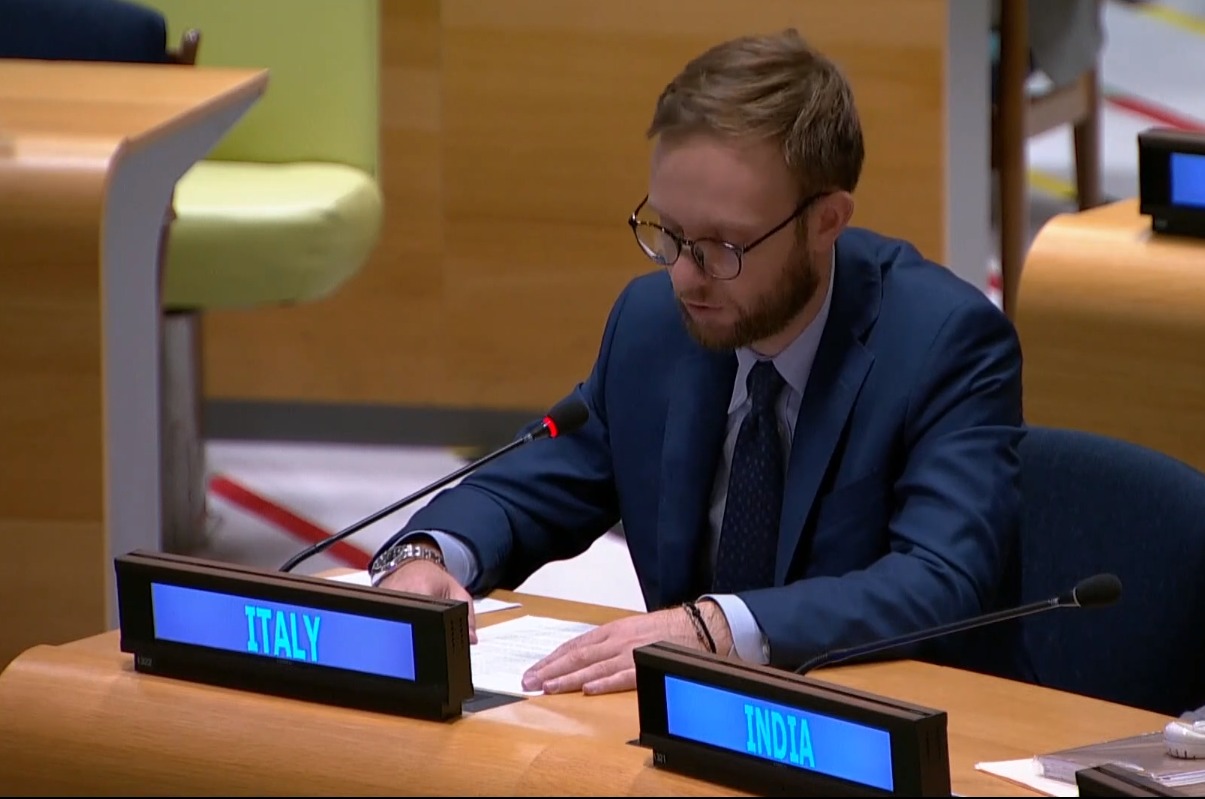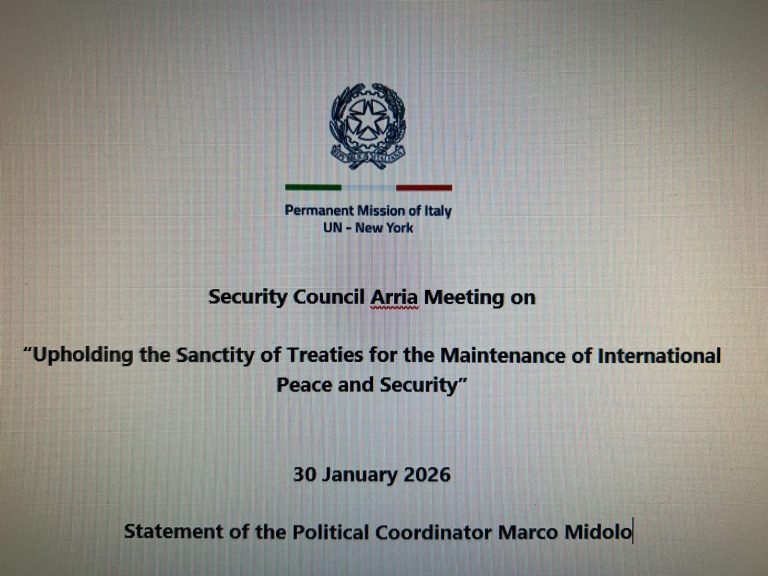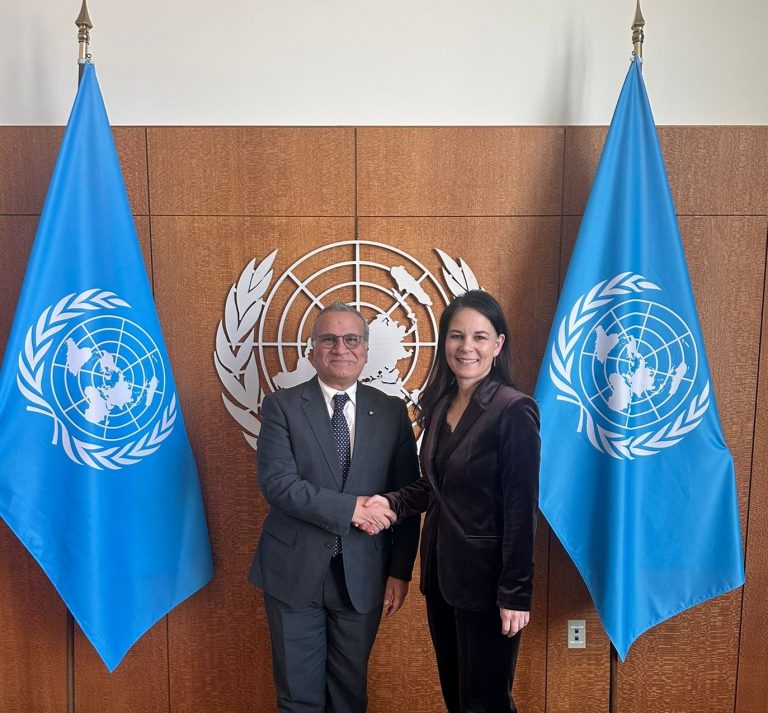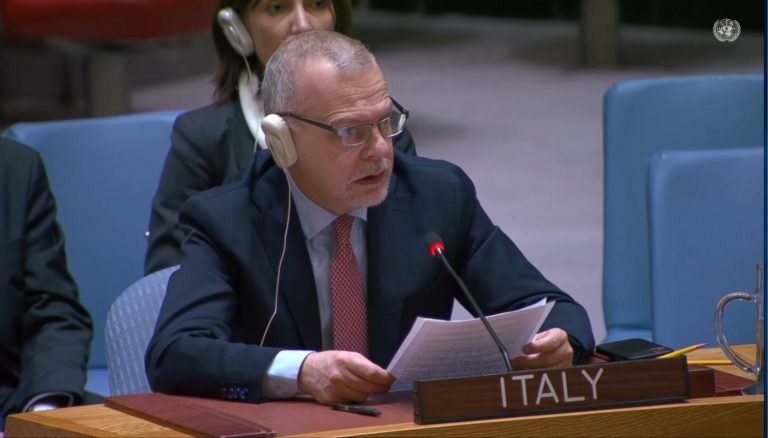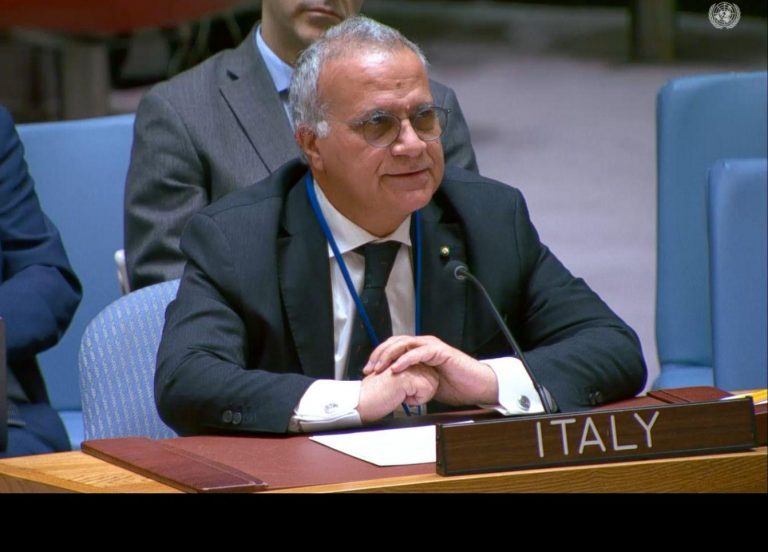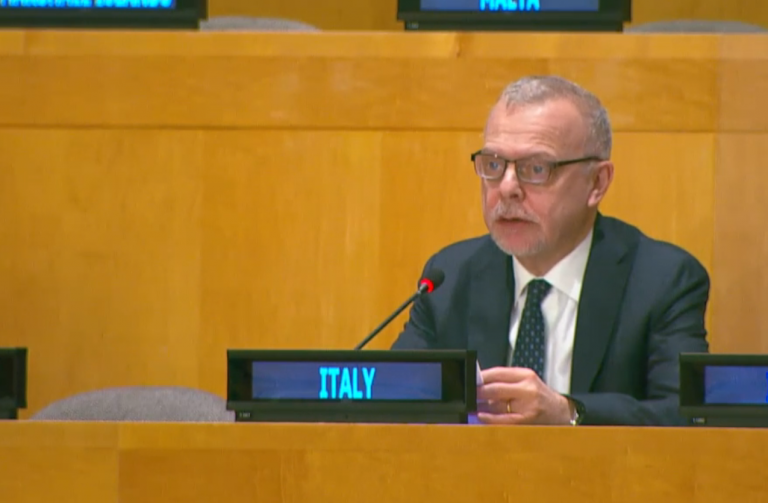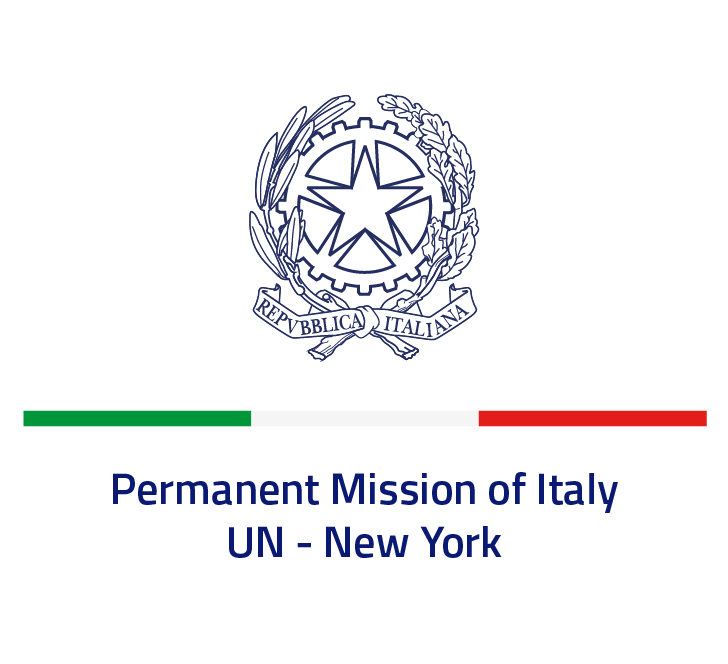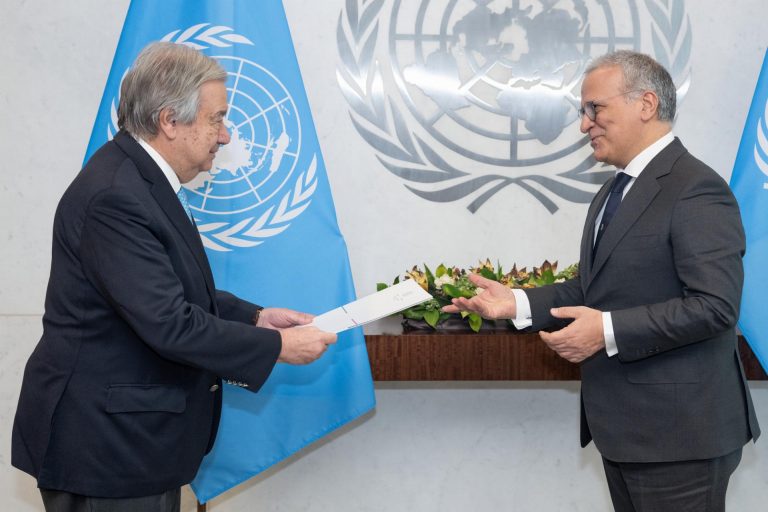I thank Ambassador Šimonović for convening this meeting, on the occasion of Peacebuilding Day.
Italy believes that the subject and geographic focus of today’s meeting is of particular importance for the work of the Peacebuilding Commission. We therefore unreservedly join the PBC Member States, supported by the PBSO, in promoting a multidimensional peacebuilding approach in the fight against transnational organized crime and terrorism.
Today’s meeting is also timely given the recent adoption by consensus of the eighth review of the United Nations Global Counter-Terrorism Strategy, which we, of course, welcome.
Many of the actions contained in the four pillars of the UN Global Strategy provide guidance on shared solutions to tackle the drivers of terrorism and violent extremism. The full implementation of the Strategy would then help consolidate preventive approaches, focused on the root causes of violence and conflict, such as poverty and institutional fragility.
In the same vein, we are appreciative of the initiatives carried out by the United Nations System to implement the UN Integrated Strategy for the Sahel and prevent conflicts, violent extremism and crime in the region, also through a development- centered approach.
Since we have heard the detailed briefings of the representatives of UNOCT and UNODC, allow me to thank, in particular, these two UN entities, with which Italy has developed a fruitful collaboration over the years.
Italy has been supporting, upon their request, Western African Countries in training criminal justice and law enforcement officials, to develop their capacity to prevent, investigate and prosecute terrorist and criminal acts.
Last month, for example, Italy and UNOCT organized a regional training module in Rome to enhance capacities of participating Member States from West Africa and the Sahel region to prevent transnational crimes and the cross-border movement of terrorists through improved border security management.
We have also supported, since its founding, the UNOCT Programme Office for Counter-Terrorism and Training in Africa, based in Rabat.
As regards our collaboration with UNOCT, we are currently financing and implementing projects aimed at improving search techniques and evidence collection for combatting piracy in the Gulf of Guinea and terrorism in Nigeria.
Our multilateral and bilateral cooperation with Member States Governments is complemented by the involvement of local NGOs and civil society organizations, with the aim of strengthening community resilience in preventing violent extremism in this regard.
We have learned from our experience that in order to achieve sustainable results in the fight against transnational crime and terrorism three preconditions must be met: ownership; respect of the rule of law; and inclusivity.
While pursuing these three priorities in our own national policies, we are also committed to transposing them in international cooperation initiatives, such as the Africa Focus Group of the Global Coalition Against Daesh, a collaborative, civilian-focused counterterrorism effort, co-chaired by Morocco, Niger, the United States and my own Country, Italy.
In view of further strengthening African-led initiatives and solutions, we are also looking forward to the findings of the High-level Independent Panel on Security and Development in the Sahel led by former President of Niger, Mahamadou Issoufou.
I thank you.







